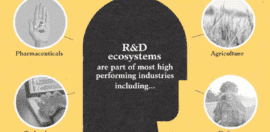Philanthropic Diplomacy? Small But Effective Drops in the Bucket.
10 March 2016 at 9:50 am
A trip to Indonesia as part of a Department of Foreign Affairs philanthropy delegation has revealed how Australian philanthropic funds, even in small amounts, can make a significant difference in other countries, writes Pro Bono Australia Founder Karen Mahlab AM in her latest blog.
Recently I returned from Indonesia with a full and informed head. Some of you who know me know that I have a fondness for Indonesia and its people, whom I visit three or so times a year, but this time my trip was to Jakarta and Yogjakarta where I was part of a philanthropic delegation led by Professor Tim Lindsey, chair of the Australian Indonesian Institute (AII).
AII sits underneath the Department of Foreign Affairs (DFAT). It was established by the Australian Government in 1989 “to contribute to a more broadly based and enduring relationship between Australia and Indonesia and to project positive images of Australia and Indonesia in each other’s country”.
It was a bit of an eye opener to encounter the extensive security search on entering into the Australian Embassy on our first day, but thankfully that was about all the security needed for the trip and considering the dire headlines happening back in Oz we spent most of our time there blissfully unaware.
At the just opened Australian embassy we had extensive briefings on Indonesia and on philanthropy in Indonesia.
Many of you will know that Australia’s Foreign Aid budget was slashed in 2014 – cut from $600 million per annum to $374 million in 2015. In very practical and obvious ways this has the effect of decreasing Australia’s ability to have a presence on the ground and develop people-to-people relationships in countries overseas.
This decreases our “soft power” and our understanding of activity in foreign countries. Dr Michael Fullilove, Executive Director of the Lowy Institute for International Policy, in his 2015 Boyer lectures decried the lack of diplomatic representation that Australia has overseas in relation to its standing as a first world country and significant democracy. Aid budgets feed into this.
In response to the budget cuts DFAT is looking to leverage the private sector to offet some of the falls.
There are a number of ways they’ve identified to do that:
- Encourage Australian philanthropists to give to projects overseas.
- Encourage companies operating overseas to extend their CSR activities
- Encourage impact investing.
Our delegation was part of the philanthropy piece. Philanthropy is independant money. Those who spend it can be brave and strategic if they choose to be. In philanthropy’s best iteration it funds innovative and risky projects. In its best iteration it’s also well informed and experienced.
This trip introduced us to some of the best and most effective projects in Indonesia, many of which have been supported by The Australia Indonesian Institute over many years. The funding isn’t huge (The AII only funds $800,000 annually) but the effect seems to have delivered multiples in terms of cross cultural engagement and understanding.
We visited two wonderfully welcoming schools – complete with musical bands and singing – who are twinned with Australian schools as part of AIIs BRIDGE program. One was an Islamic school – a madrass – and one a Catholic school. There were some pretty hilarious moments when our delegation was asked to sing!
We also met with many savvy and significant arts organisations who provide an important role in showcasing different voices and values in Indonesia. None of them receive Indonesian Government funding. Again, they were wonderfully creative groups and people such as Papermoon puppet theatre, the art space Komunitas Salhara, and the filmmaker Garin Nugroho.
Last but by no means least, we met with women’s empowerment project MAMPU who deal with disabled and disadvantaged women across Indonesia in a very local and real way, including young Indonesian woman, Lusi Efriani and her “Batik Girl” dolls – the product of her innovative social enterprise in which Barbie-like dolls dressed in traditional costume are made by female prison inmates. We heard eight different presentations from representatives from across Indonesia.
DFAT has commissioned via Tulodo, research into the hard-to-define and hard to track nascent philanthropy scene in Indonesia. Indonesia, like Australia, has only recently started mapping philanthropy and organising representative bodies such as we have like Philanthropy Australia. See PIRAC.
In developing countries philanthropy has a huge role and Australian philanthropic funds can make a significant difference in countries abroad. It may be a mere drop in the bucket, and there’s no way philanthropy can – or should – replace foreign aid budgets, but in this increasingly connected, increasingly polarised world, independent philanthropic dollars, as drops in the ocean, can cause many ripples even with small amounts.
As a philanthropist it’s worth considering funding overseas.







